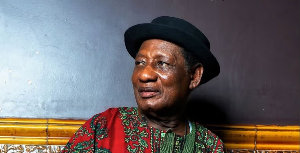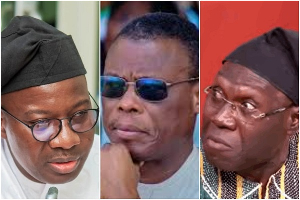Limited rights of dual citizens: a resurgence of caste system?
Part One
INTRODUCTION
The concept of citizenship is very important in every human existence as it clothes a person with membership in a political community. A citizen is a member of a political community who enjoys the rights and assumes the duties of membership. Citizenship denotes the link between a person and a state. Possession of citizenship is normally associated with the right to work and live in a country and to participate in its political life. A person who does not have citizenship in any state is said to be stateless.
Aristotle once said: “The good citizen should know and have the capacity both to rule and to be ruled, and this very thing is the virtue of a citizen.” In 1958, Warren, the Chief Justice of England said: "Citizenship is man's basic right for it is nothing less than the right to have rights. Remove this priceless possession and there remains a stateless person, disgraced and degraded in the eyes of his countrymen. He has no lawful claim to protection from any nation, and no nation may assert rights on his behalf”: Perez v. Brownell 356 U.S. 44 (1958) cited in SHALABI AND ANOTHER v. THE ATTORNEY-GENERAL [1972] 1 GLR 259-270.
Marshall has also said that citizenship must be understood as a status which includes “the right to share to the full in the social heritage and to live a life of a civilised being according to the standards prevailing in the society”: (Marshall, T. H. (1950). Citizenship and Social Class and other essays. Cambridge: Cambridge University Press)
Charles Crabbe J.S.C. has noted that, “Citizenship is a relationship that exists between a state and an individual. That relationship is prescribed by law. There are certain rights and duties attendant upon the status of being a citizen of a state. But there are obligations”: MEKKAOUI v. MINISTER OF INTERNAL AFFAIRS [1981] GLR 664-722.
The basic law on citizenship in Ghana is the 1992 Constitution (see Chapter Three thereof) as amended by section 1 of the Constitution of Ghana (Amendment) Act, 1996 (Act 527) and Citizenship Act, 2000 (Act 591). Since Ghana attained independence and since we were formally granted the legislative right to formulate laws for ourselves, Ghanaian parliaments have insistently proscribed dual citizenship in Ghana. The 1992 Constitution ushered Ghana into a flashlight of constitutional rule which is premised on democracy. The 1992 Constitution, drafted in characteristically chauvinistic fashion as all its predecessors, specifically proscribed dual citizens under its article 8.
The express proscription of dual citizenship in Ghana’s fourth Republican Constitution has given a section, if not all, of Ghanaians goose pimples. Many persons have pressed government through individual and organized efforts to have the law proscribing dual citizenship repealed or at least couched in a manner more favourable to persons holding dual citizenship. The government of Ghana partly heeded to the calls and in 1996 decided to amend the 1992 Constitution. The 1992 Constitution was therefore amended by Constitution of Ghana (Amendment) Act, 1996 (Act 527) which ultimately resulted in the enactment of the Citizenship Act, 2000 (Act 591).
Notwithstanding these two major legislative attempts by the Ghanaian parliament, it is still note worthy that Ghana has not completely shed its aversion for dual citizenship. Ghana’s apparent revulsion for dual citizenship is deeply rooted in public policy and suchlike considerations. I deem it expedient and convenient to discuss the position of dual citizens in line with the respective legislative reformations made in Ghana so far.
Part Two
CONSTITUTION OF GHANA (AMENDMENT) ACT, 1996 (ACT 527)
As has been noted earlier, the 1992 Constitution originally expressly proscribed dual nationality in Ghana. However, the Constitution of Ghana (Amendment) Act, 1996 (Act 527) sought to alter the position.
Section 1 of Act 527 repealed Article 8 of the 1992 Constitution and provided that a citizen of Ghana may hold the citizenship of any other country in addition to his citizenship of Ghana. However, section 8(2) of Act 527 excluded dual citizens from holding certain public offices namely, (a) Ambassador or High Commissioner; (b) Secretary to the Cabinet; (c) Chief of Defence Staff or any Service Chief; (d) Inspector-General of Police; (e) Commissioner, Custom, Excise and Preventive; (f) Director of Immigration Service; and (g) any office specified by an Act of Parliament. The amendment also made it possible for the revival of citizenship that is lost as a result of requirements of marriage in another country (vide section 8(3)).
Significantly note worthy is the fact that, this amendment did not affect certain specific provisions of the 1992 Constitution which stated that only ‘sole’ citizens could hold certain public offices. By ‘sole’ I mean citizens whose citizenship is an incident of their birth in Ghana. For instance, the amendment retained the provisions that, only a Ghanaian citizen by birth can be a president or vice-president of Ghana, see articles 60(3) and 62(a). Also, a dual citizen cannot be a Member of Parliament, a speaker or deputy speaker of Parliament, see articles 94(2) (a), 95(1) and 96(3). It is plain from Act 527 that even though duality of citizenship was made permission, dual citizens are ‘discriminated against’ in holding the offices specified in section 1(2). Does this perceived ‘discrimination’ amount to an infringement of the basic structure of the constitution itself? I shall return to this point later.
Part Three
THE CITIZENSHIP ACT, 2000 (ACT 591)
In 2000, the Parliament of Ghana, ostensibly acting under section 1(2)(g) of the Constitution of Ghana (Amendment) Act, 1996 (Act 527) enacted the Citizenship Act, 2000 (Act 591). Part III of Act 591 deals with DUAL CITIZENSHIP, RENUNCIATION AND DEPRIVATION OF CITIZENSHIP. The provisions under this Part of Act 591 are basically a verbatim reproduction of section 1 of the Constitution of Ghana (Amendment) Act, 1996 (Act 527). However, under section 16(2) of the Citizenship Act, 2000 (Act 591), it is important to note that, Parliament added some public offices which dual citizens cannot hold in Ghana.
A comparison of this section 16(2) of the Citizenship Act, 2000 (Act 591) with article 8(2) of the 1992 Constitution (as amended by section 1 of the Constitution of Ghana (Amendment) Act, 1996 (Act 527)) reveals that the following are the additional public posts/offices added by section 16(2): Chief Justice and Justices of the Supreme Court; Commissioner, Value Added Tax Service; Director-General, Prisons Service; Chief Fire Officer; Chief Director of a Ministry; and the rank of Colonel in the Army or its equivalent in the other security services.
In addition thereto, section 16(2)(m) of Act 591 adds the residuary category of “any other public office that the Minister may, by legislative instrument, prescribe.” It is interesting to note that the 1992 Constitution delegated legislative power to Parliament to enact the Citizenship Act, 2000 (Act 591), and Parliament has further delegated its delegated power to the Interior Minister to prescribe or exclude dual citizens from holding certain offices. The question then arises whether by the operation of the maxim, delegatus non potest delegare, parliament was wrong in enacting section 16(2) (m) of Act 591. I now turn to deal with the constitutionality or otherwise of the additions and the provisions in section 16(2)(m).
Part Four
CONSTITUTIONALITY OF THE AMENDMENT AND THE CITIZENSHIP ACT, 2000 (ACT 591)
The constitutionality of the Constitution of Ghana (Amendment) Act, 1996 (Act 527) and the Citizenship Act, 2000 (Act 591) was the subject of intellectual mêlée in the recent case of PROFESSOR STEPHEN KWAKU ASARE vrs THE ATTORNEY-GENERAL (2012) SCGLR 460 (decision delivered on 22ND MAY, 2012).
Facts of the case
The plaintiff in this case by a civil writ of summons sought inter alia, a declaration that section 16(2) of the Citizenship Act, 2000 (Act 591) and article 8 of the 1992 Constitution (as amended) are null, void and of no effect as they contravene the letter and spirit of Articles 15, 17 and 55(10) of the 1992 Constitution, in that whereas section 16(2) discriminates against a Ghanaian citizen who has acquired the citizenship of another country by disqualifying the citizen from holding any of the offices specified in the said section, article 8 infringed the dignity clause under article 15. At the heart of the Plaintiff’s case was the argument that the Constitution forbids a caste system that treats some citizens as less than full citizens with limited rights. The plaintiff contended that banning dual citizens from holding the specified offices rendered them second class citizens and curtailed their fundamental right to full participation in the civil and political life of the country.
The plaintiff also claimed that Parliament did not follow the correct procedure before amending the constitution. In relation to article 55(10), the plaintiff’s argument was that the impugned article 8(2) and its consequential legislation had the obvious and intended effect (if not the express purpose) of restricting political participation by dual citizens in violation of the Equal Participation Clause of the Constitution and that the grounds for the exclusions of dual citizens from the specified public offices were not permissible under the Participation Clause of the Constitution.
The Plaintiff’s case also was that any subsidiary legislation or administrative practice that calls for dual citizens to possess additional documentation that sole citizens were not required to possess was unreasonable, unnecessary and not constitutionally warranted and was therefore null, void and of no effect.
Held: the court dismissed the plaintiff’s case save holding that parliament could not legitimately delegate the power delegated to it under the constitution. It was held to be against the spirit of the Constitution for Parliament to delegate to the Minister the authority which Parliament itself had received by delegation from the Constitution. This was against the sound policy embodied in the maxim: delegatus non potest delegare. The court’s interpretation of article 8(2)(g) of the 1992 Constitution was that the mandate it gave to Parliament to specify offices from which dual nationals were excluded did not include a mandate to further delegate that authority to a Minister to exercise by Legislative Instrument. It was thus held that section 16(2)(m) was unconstitutional.
This delegated Ministerial authority was subject to abuse and would not have the protective process of Parliamentary debates which attend the passage of a Bill into an Act.
The Equality Argument
The court held that, before the enactment of the impugned article 8(2), there was unequal treatment of citizens in the sense that a citizen who voluntarily acquired a foreign citizenship lost his Ghanaian citizenship and all the rights entailed in that citizenship. Although such a person was no longer a Ghanaian citizen, his loss of his citizenship rights was a consequence of the unequal treatment he had received from the law. It was further said that now, the reformed law preserved part of the rights of dual citizens in contrast to the total loss of those rights consequent on dual nationality. The reform was therefore considered to be an advancement of greater equality, rather than the opposite. The deprivation under the old law was worse deprivation of rights than the exclusions from offices complained of by the Plaintiff. The court said:
“To my mind, therefore, against this backdrop, article 8(2) expanded, rather than diluted, the fundamental rights of a Ghanaian and the argument that it created more inequality or loss of dignity or less rights of political participation is clearly misconceived and should be rejected.”
The court held that the mere fact that “sole” citizens and dual citizens are treated differently is not necessarily a breach of article 17 of the Constitution. It was said that no right guaranteed under the constitution was absolute. Therefore parliament could legitimately limit the rights of dual citizens by excluding them from holding certain offices in Ghana. The restrictions on dual citizens were meant to procure stable allegiance to Ghana and were necessary for national security.
Constitutionality of administrative requirements
The court held that, citizenship, whether ‘sole’ or dual was unconditional and that no citizen was required to possess any documents as evidence of citizenship. The court stated:
“Accordingly, any administrative procedures or practices or subsidiary legislation which seek to impose fetters or conditions on the exercise by dual nationals of their rights as citizens are unconstitutional. The authority for this view of the law is article 8(1) of the 1992 Constitution. The plain language of that article makes it quite clear that a Ghanaian may hold the citizenship of any other country in addition to the citizenship of Ghana. No conditions are attached to this primary constitutional provision. The fact that article 8(2) then imposes certain exclusions from office on dual nationals does not make their rights conditional.”
To the extent that the administrative requirements were mandatory and conditioned the exercise of the rights of dual citizens on them, they were regarded as unconstitutional.
Part Five
COMMENTARY
In matters of national interest, one cannot dismiss the question of allegiance which is indeed at the root of citizenship. The security of a state is in the hands of its citizens. It is the citizens of a state who work for and on behalf of the polity. Security of the state is predicated on unquestioned loyalty of its citizens. The question of allegiance should therefore not be taken lightly. It is noticeable from the offices which cannot be held by a dual citizen of Ghana that they are all high profile or leadership positions (see article 286(5)) which involve confidentiality and unalloyed allegiance to Ghana and if some other countries do not consider them to be such, Ghana is not precluded from doing so. I therefore share the sentiments of Atuguba JSC that: “Certainly the Ghanaian society will be better integrated if the causes of suspicion on grounds of loyalty to Ghana are removed by not allowing access to sensitive public positions which involve potential conflict of national loyalties.”
It is important to state, here, that the permission of dual citizenship in Ghana is a giant constitutional development. Obviously, this all important development was done with full regard to the multiple dividends that attend dual citizenship.
Citizenship in most countries today is a requirement for securing a job and most Ghanaian emigrants into other countries could not avail themselves of such a facility because they did not want to lose their Ghanaian citizenship. By allowing dual citizenship therefore, Ghanaian citizens can fully and conveniently reap the fruits of dual citizenship.
The above apart, the idea of “economic refugees” status of most Ghanaians has become a reality of Ghana today. Whatever the moral objections that may be, it is an acknowledged fact that most of these refugees invariably bring home their economic gains from abroad. Some invest such gains in useful ventures which compliment the domestic mobilisation of financial resources to national development. However, no matter how gargantuan the dividends of dual citizenship, it is a matter of public policy for Ghana to regulate and limit the rights enjoyed by dual citizens.
Part Six
CONCLUSIONS
From the foregoing analysis, it is worthy of mention that citizenship is a matter of state sovereignty and has a unique and intricate character. Citizenship is the tool that is used by its holders to claim rights from a state, and conversely, citizenship forms the basis for civic responsibilities. A state that takes matters of citizenship light is more likely to endanger its interest. It is a dangerous omission for a state to leave matters of dual citizenship unregulated.
The perceived discrimination against dual citizens should be seen as justifiable as it is in perfect accord with national interest and security. It is certainly irrational for a president of Ghana to also be a citizen of another country, or to give a more extreme example, it would be absurd to conceive the IGP of Ghana to be a citizen of another country. In such cases, there is bound to be a conflict of national interest as dual citizens will be torn between two countries. Divided loyalty is as worse as porosity of national boundaries. Espionage is a product of divided allegiance.
Citizenship other than by birth may be cancelled if the citizen engages in any act contrary to public interest. A classic example is the case of Fattal and Another v. Minister For Internal Affairs And Another [1981] GLR 104-135. In 1978, a Decree was passed by the Supreme Military Council to nullify citizenship of two Lebanese persons, MOHAMED FOUAD FATTAL and MAHMOUD FATTAL, who were believed to have “over the years engaged in serious trade malpractices and in activities constituting economic sabotage and subversion of the economy of Ghana contrary to the public interest.” It was held that the presence in Ghana of these two men was not conducive to the public good. In Ghana, the Attorney-General may apply to the court to deprive any person who is a citizen of Ghana, otherwise than by birth, of that citizenship on the ground that the activities of any such person are inimical to the security of the state or prejudicial to public morality or the public interest (section 18 of the Citizenship Act, 2000 (Act 591)).
I entirely agree with the decision of the Supreme Court in PROFESSOR STEPHEN KWAKU ASARE vrs THE ATTORNEY-GENERAL (2012) 460. It is not contrary to any democratic principle to limit the rights of dual citizens if such limitations are purposely tailored to achieve stable allegiance and unalloyed loyalty of citizens. Such limitations as exist under the laws of Ghana cannot, by any stretch of argument, be considered as creating a caste system in Ghana. Even if such limitations create a caste system, they should still hold sway insofar as they ensure unquestioned allegiance and national security.
Daniel Korang
Enso Nyame Ye Chambers
Sunyani
Email: dkorang1986@yahoo.com
Mob: 024 827 8729
Opinions of Saturday, 10 August 2013
Columnist: Korang, Daniel
Limited rights of dual citizens
Entertainment













